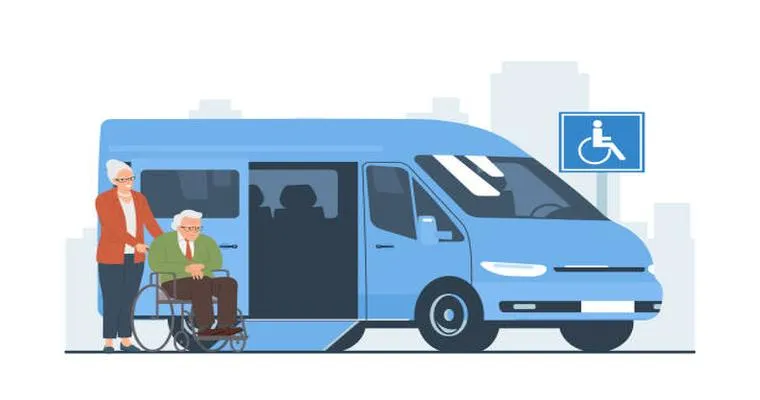As our loved ones age, "senior transportation" becomes a vital aspect of their independence and well-being. Ensuring that older adults have access to safe, reliable, and convenient transportation options is essential for maintaining their quality of life. From medical appointments to social engagements, the right transportation solutions can make a significant difference in how seniors navigate their daily lives. In this article, we will explore various "transportation services", the importance of "accessible transport", and tips for choosing the best options for seniors.
The Importance of Senior Transportation
As individuals age, they may face mobility challenges that can hinder their ability to drive or use traditional public transport. This makes "senior transportation" services crucial. These services not only provide a means to get to medical appointments and grocery stores but also encourage social interactions and community engagement. The benefits of reliable transportation for seniors include:
1. "Access to Healthcare": Regular visits to healthcare providers are essential for managing chronic conditions and maintaining overall health. Reliable transportation ensures that seniors can attend these appointments without hassle.
2. "Social Engagement": Isolation can be a significant issue for older adults. Transportation services enable them to participate in social activities, visit friends and family, and engage in community events, which can enhance their mental and emotional well-being.
3. "Independence and Freedom": Having access to transportation allows seniors to maintain a sense of independence. They can enjoy the freedom to travel when they wish, fostering a sense of autonomy.
Types of Senior Transportation Services
There are various "transportation options" available for seniors, each designed to meet different needs. Here are some of the most common types:
1. "Non-Emergency Medical Transportation (NEMT)": These services are specifically tailored to help seniors get to and from medical appointments safely. NEMT providers often offer door-to-door service, ensuring that seniors are assisted throughout their journey.
2. "Public Transportation": Many cities offer discounted fares for seniors on buses and trains. Some public transit systems also provide accessible vehicles equipped with ramps and designated seating for those with mobility challenges.
3. "Ride-Sharing Services": Platforms like Uber and Lyft have introduced programs that cater to seniors. These services allow for easy booking via smartphone apps, and some drivers are trained to assist passengers with mobility limitations.
4. "Volunteer Driver Programs": Many communities have volunteer-based transportation services where local residents offer rides to seniors. This option often fosters a sense of community and connection.
5. "Senior Transportation Programs": Various organizations and nonprofits focus on providing transportation solutions for seniors. These programs may have specific eligibility criteria and can offer subsidized or free rides.
Tips for Choosing the Right Transportation Service
Selecting the appropriate "senior transportation" service can feel overwhelming, but considering a few key factors can simplify the process:
1. "Assess Needs": Evaluate the specific transportation needs of the senior in question. Consider factors such as mobility level, frequency of travel, and destinations.
2. "Check Accessibility": Ensure that the transportation service is accessible for seniors with mobility challenges. Look for features like wheelchair lifts, trained drivers, and comfortable seating.
3. "Read Reviews and Testimonials": Research and read reviews from other users of the service. Feedback can provide insights into reliability, safety, and overall customer satisfaction.
4. "Inquire About Costs": Understand the pricing structure and any potential hidden fees. Some services may offer discounts for seniors, so be sure to ask about available options.
5. "Trial Run": If possible, arrange a trial run with the transportation service to see how well it meets the senior's needs. This can help ensure comfort and familiarity with the process.
Conclusion
Senior transportation is a crucial element in promoting independence and enhancing the quality of life for older adults. By understanding the various options available and assessing individual needs, families can make informed decisions that ensure their loved ones have safe and reliable transportation. Whether through community programs, public transport, or ride-sharing services, the right transportation solutions can significantly impact seniors' ability to stay active, engaged, and healthy in their golden years.





